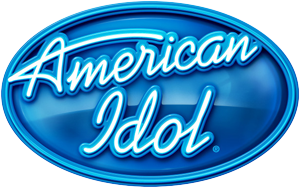I love a good singing competition. And for years, I avidly watched (and blogged about)
American Idol. Until the show became a parody of itself and lost its ability to find or make pop (or pick your musical genre) stars. Yes, there were still some good singers -- make that very good singers. But actual stars, people who could sell lots of albums, after the glow of that season's
American Idol had dimmed, who you would hear in heavy rotation on the radio? Not so much. Make that not at all. (Lee DeWho? Caleb Who's Son? Nick Fradiani anyone? And how many of you bought Candice Glover's R&B album? And how many of you even recalled any of those people before reading what I just wrote?)
Indeed, the last
Idol winner or finalist who I recall ever hearing on the radio is Phillip Phillips, who won Season 11 -- and I had to look up what season he won.
The Voice, NBC's singing competition, has a similar problem. While I love the idea of the blind audition, it's really just a gimmick. And the show has yet to produce any real stars. In reality, the true stars of the show, the ones who have actually sold lots of records because of it, are the various judges, not the competitors. (While I can actually recall the names of several winners, I have yet to hear any of them on the radio or read about them selling out concert venues or selling many records -- and I've looked.)
So why hasn't either show produced any (new) stars, or produced any platinum- or gold-record sellers in the last four (or more) years? Two reasons. (And neither of them has to do with the fact that no one buys records any more.)
The first is the judges. Say what you will about Simon Cowell, but he knew how to spot and develop musical talent. That was his job as an A&R, or artists and repetoire, guy for record labels, to find and groom the next breakout music star. And he has a pretty good track record.
While Paula Abdul was a successful pop star, back in the 1980s, and Randy Jackson was a successful musician and producer, neither one of them had or has a track record, or success, spotting or grooming or marketing a great singer/star. Ditto Steven Tyler, Ellen DeGeneres, Mariah Carey, Nicki Minaj, Jennifer Lopez, Harry Connick, Jr., or Keith Urban* -- or Adam Levine, Blake Shelton, Christina Aguilera, or Gwen Stefani** -- all of whom are talented, award-winning performers. But spotting, grooming, and marketing someone, other than yourself, is a different talent.
And while Keith Urban, Jennifer Lopez, and Harry Connick, Jr., are, in my opinion, the best, as in most fun/entertaining, group of judges
American Idol has had since the early days (before Paula went gaga and Randy became a cliche), their collective superstar powers have yet to identify a superstar, or even a star. And while Scott Borchetta, the
American Idol mentor (which seems to involve making or supporting terrible song choices) may have signed several big names, perhaps, most notably, Taylor Swift, it would seem as though
American Idol is his kryptonite.
The second reason the show has failed to produce a real winner is the American public. We suck at judging talent competitions. Or when we vote in packs we do.
All that said, I am (as of this writing) planning to watch -- and blog about (when it goes live) --
American Idol Season 15, supposedly the last season ever of
American Idol. (Though never say never, or ever, in Hollywood.) And I am hoping (though not hopeful) that this season the judges and America will have finally "discovered" another star.
Stay tuned.
*No, I did not forget Kara DioGuardi, though I would like to.
** The one exception on
The Voice is Pharrell Williams, but he has yet to pick a star from that competition. And before anyone says "What about Sawyer Fredericks?!" When have you heard him on the radio -- and do you know anyone who bought his album? Does he even have an album?








